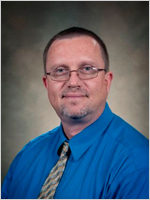What do I do now? It’s probably the most important question service members ask themselves when they are deployed home. The transition from uniformed duty to civilian status is not just a change of jobs. It’s the start of what could be the hardest mission: going home. According to a nationwide poll of veterans conducted by The Washington Post and Kaiser Family Foundation, more than half of veterans returning home from Iraq and Afghanistan said their adjustment to civilian life was difficult. They cited various reasons, from struggles in finding a good job to inadequate assistance from the government.
#DeployedHome is an effort created by Bama At Work to help share the stories of returning veterans and how they have made it through their struggles. This campaign is part of the Service Member to Civilian Summit’s effort to bring together service members, veterans, their families, and community stakeholders to meet with advocates, researchers, clinicians, educators, and policymakers from around the nation, They want to better understand and explore ways that all stakeholders can improve the transition from military service to civilian life.
Veterans who have survived Al Qaeda, roadside bombs, land mines and death of their fellow soldiers are now struggling to put their lives back together. In the 13 years since American troops first deployed to Afghanistan and Iraq, more than 2.6 million veterans have returned to a country that was not fully prepared to meet their needs.
Through the use of #DeployedHome we hope that many of these veterans will see how their fellow soldiers have made it through and can see that they aren’t alone in this battle. If you are interested in participating, you can also submit your transition stories on our website militarytransition.ua.edu .
We invite veterans to tell us their story using #DeployedHome on Facebook and/or Twitter. We want to let our veterans know they are not alone, and there is still hope for them to overcome any challenge they may be facing.
Article by Leroy Hurt and Kevin Lake. Leroy is the Associate Dean for the Professional Development and Community Engagement at The University of Alabama.He is also a retired U.S. Army officer. Kevin is the Communications Specialist for The University of Alabama College of Continuing Studies.









